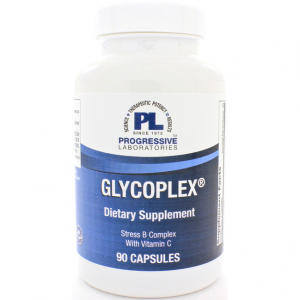Courtesy of:
John H. Keefe III, D.C.
(918) 663-1111
IN THE NEWS: Rare Gene That Confers Drug Resistance Between Bacteria Now Found in 27 States At present, 23,000 Americans die each year from drug-resistant infections; estimates suggest that by 2050 the global death toll from antibiotic-resistant disease will reach 10 million per year. One significant driver of antibiotic-resistant bacteria is the routine use of antibiotics in agriculture. Another major contributor to and source of drug-resistant infections is hospitals. One particularly troublesome multidrug-resistant bacteria that is gaining ground is carbapenem-resistant enterobacteriaceae (CRE), which produces an enzyme that breaks down antibiotics. Tests conducted on nearly 5,780 antibiotic-resistant bacterial samples collected from hospitals and nursing homes found 1 in 4 contained genes known to confer drug resistance, and 221 contained a particularly rare drug-resistance gene that confers a very high level of resistance. The 221 samples came from 27 different states, which shows this new drug-resistance gene has already spread far and wide. The gene was found in samples of pneumonia, bloodstream infections and urinary tract infections. NOTE: There are multiple safe and effective natural treatments for infections, try a natural approach first then consider a drug like antibiotics only if necessary.
WELLNESS: Pantothenic Acid: A Crucial Vitamin for Optimal Health What Is Pantothenic Acid? The popularity of pantothenic acid or vitamin B5 pales in comparison to that of the other B vitamins, probably because it’s easily obtained from a well-balanced diet, so a deficiency of it is quite rare. Being a lesser-known vitamin does not take away from its worth, though. Pantothenic acid is still essential for your health, as it helps perform a number of functions that sustain life itself, including: Breaking down fats and carbohydrates for energy-Producing red blood cells-Manufacturing sex and stress-related hormones-Synthesizing cholesterol. As with other forms of vitamin B, pantothenic acid is not stored in the body because it’s water-soluble. The excess pantothenic acid that your body did not use will be flushed out through your urine, which means that you have to obtain it from your food every day. While a deficiency in vitamin B5 rarely occurs, it’s still entirely possible, especially if you have dietary restrictions that may keep you from eating foods rich in this nutrient. Pantothenic acid is sensitive to heat and humidity, so consuming processed foods that have been subjected to high-temperature manufacturing methods may not be enough to replenish your body’s level of this vitamin. Pantothenic acid performs vital functions that may help keep your overall well-being in optimal condition. One of these functions is its ability to support the synthesis of hormones in the adrenal glands, which may help you cope with stressful situations, hence why it’s also known as the “anti-stress” vitamin.
CONDITION OF THE WEEK: SLEEP DISORDER-Myth 1: Getting just one hour less sleep per night won’t affect your daytime functioning.You may not be noticeably sleepy during the day, but losing even one hour of sleep can affect your ability to think properly and respond quickly. It also compromises your cardiovascular health, energy balance, and ability to fight infections. Myth 2: Your body adjusts quickly to different sleep schedules. Most people can reset their biological clock, but only by appropriately timed cues—and even then, by one or two hours per day at best. Consequently, it can take more than a week to adjust after traveling across several time zones or switching to the night shift. Myth 3: Extra sleep at night can cure you of problems with excessive daytime fatigue. The quantity of sleep you get is important, sure, but it's the quality of your sleep that you really have to pay attention to. Some people sleep eight or nine hours a night but don’t feel well rested when they wake up because the quality of their sleep is poor. Myth 4: You can make up for lost sleep during the week by sleeping more on the weekends. Although this sleeping pattern will help relieve part of a sleep debt, it will not completely make up for the lack of sleep. Furthermore, sleeping later on the weekends can affect your sleep-wake cycle so that it is much harder to go to sleep at the right time on Sunday nights and get up early on Monday mornings. You may be sleep deprived if you...Need an alarm clock in order to wake up on time-Rely on the snooze button-Have a hard time getting out of bed in the morning-Feel sluggish in the afternoon-Get sleepy in meetings, lectures, or warm rooms-Get drowsy after heavy meals or when driving-Need to nap to get through the day-Fall asleep while watching TV or relaxing in the evening-Feel the need to sleep in on weekends-Fall asleep within five minutes of going to bed. NOTE: Chiropractic and nutritional therapy are extremely effective for sleep problems, ask about it on your next appointment.
FUNNY BONES: Father: “Son, you were adopted.” Son: “What?! I knew it! I want to meet my biological parents!” Father: “We are your biological parents. Now pack up, the new ones will pick you up in 20 minutes.”@@In a bakery: Man to the shop assistant: “I’ll have that thing there, please.” Shop assistant: “Cupcake?” Man: “OK, Cupcake, I’ll have that thing there, please.”@@ "Hey dad how was your weekend?" - "Light, dark, light, dark, Monday."@@ A jellyfish has existed as a species for 500 million years, surviving just fine without a brain. That gives hope to quite a few people.





